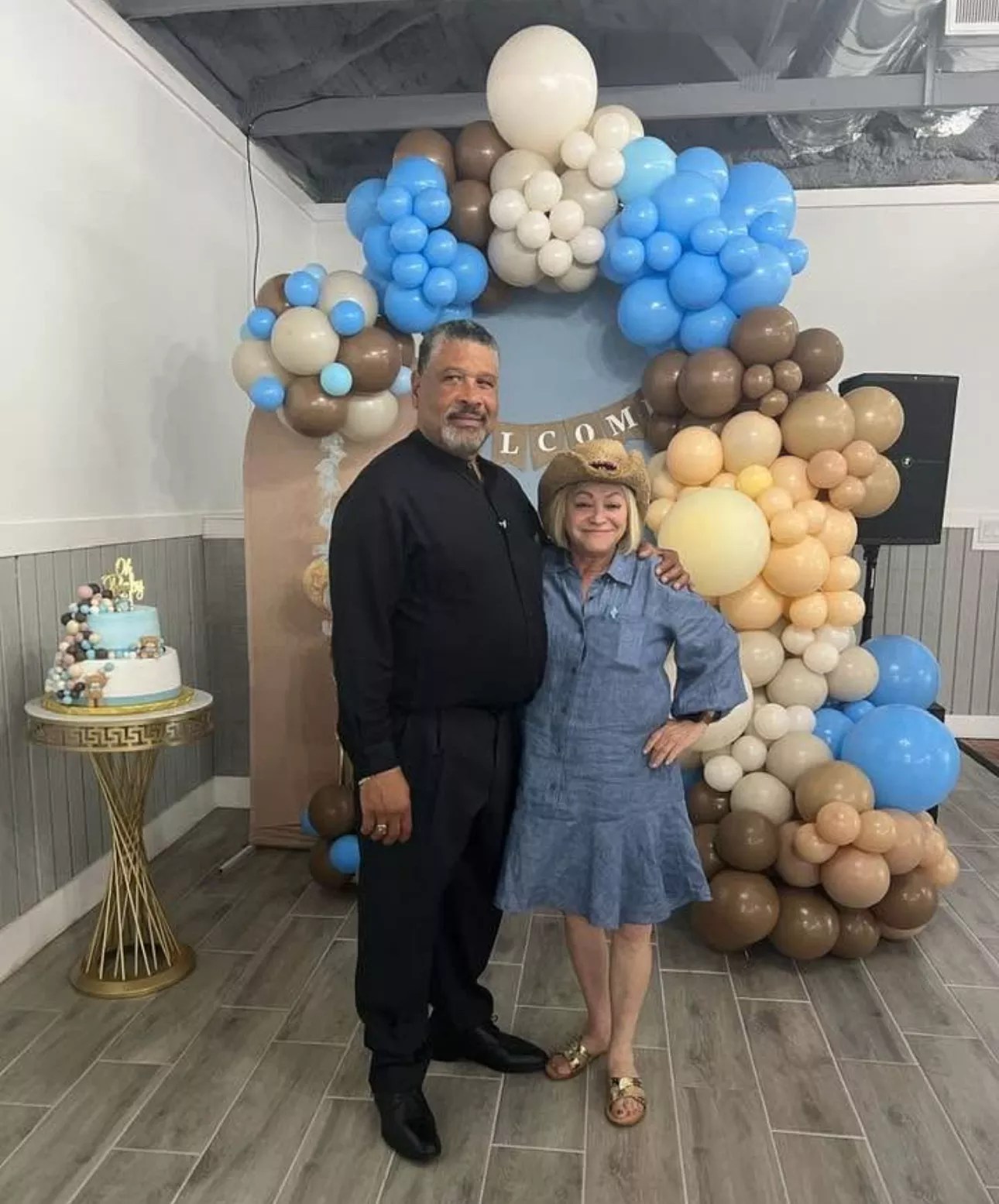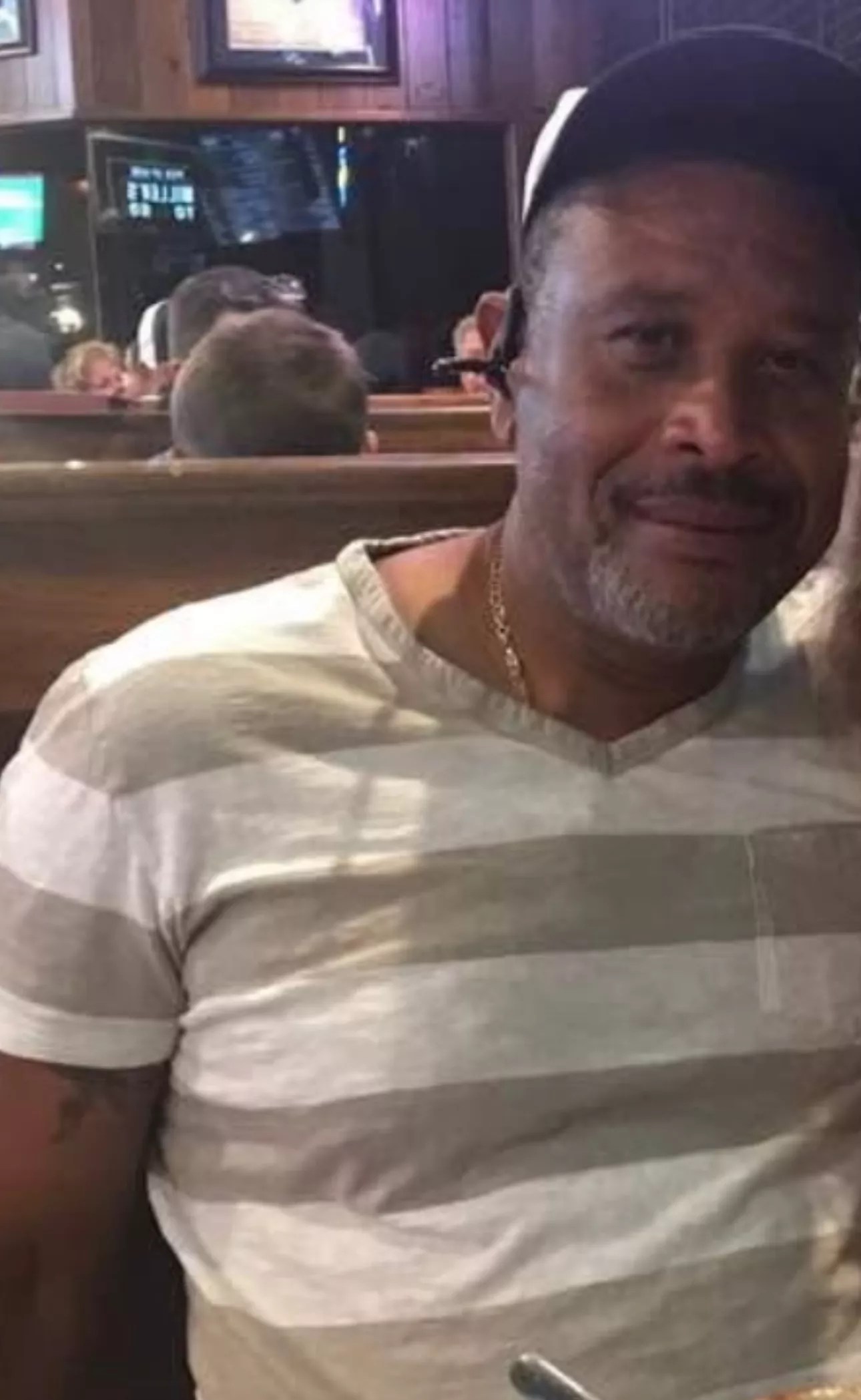
Rafael Collado photo

Audio By Carbonatix
On Tuesday, several local nonprofits, medical professionals, public health experts, and family members of Alligator Alcatraz detainees gathered outside the controversial detention facility deep in the Florida Everglades to speak about the facility’s conditions and advocate for its closure.
Among the many speakers on July 22 was 63-year-old detainee Rafael Collado, who called into the protest from inside the detention center. To the 50 or so protesters, he described the treatment of detainees as prison-like.
“I find this to be like a cage for dogs,” he said in his native Spanish. “They have us put our hands behind our heads as if we were in El Salvador… They disrespect you. They try to get you to talk back so they can take violent actions against you.”
After Collado arrived at Alligator Alcatraz earlier this month, he called and spoke to his partner of 26 years, Sonia Bichara, every day, three times a day, she says. But Bichara says she hasn’t heard from him since he spoke out at Tuesday’s press conference. She is now worried that Collado is in trouble for speaking out about the conditions.
“He just happened to call at that time, and I just got nervous and I said, ‘It’s my husband,” she tells New Times, fighting through tears. “They put him on, and I don’t think I should have done that.”
On July 7, Bichara accompanied her fiancé, who emigrated from Cuba 45 years ago, to his appointment at the U.S. immigration and Customs (ICE) field office in Miramar, as she says he has done every year since his release from prison ten years ago. He had served 17 years related to a shooting.
“After four hours, I went and I asked where he was and they told me to get back into my car and my family member will call me,” she recounts about the ICE appointment. “Then I saw them taking his shirt off and checking his tattoos and things like that, which he only has names of his family. I didn’t hear from him that Monday or Tuesday. I heard from him on Wednesday, and he told me that they had him at Alcatraz and that it was really horrible there.”

Sonia Bichara hasn’t heard from Collado since Tuesday.
Rafael Collado photo
She says that prior to speaking with her on the phone during the press conference, he complained about rainwater entering the tent and that he hadn’t received any of his medicine.
“He was just complaining about the water,” Bichara adds. “He got fungus on his feet from the water because he can’t climb the bunk bed, so he had a bottom bed, and the water was hitting it.”
The Florida Division of Emergency Management, which runs the detention facility, did not return New Times’ requests for comment.
Last month, Florida Gov. Ron DeSantis used emergency powers to seize the Dade-Collier Training and Transition Airport from Miami-Dade County to build the sprawling 3,000-bed detention facility that the Trump administration promised would hold the “worst of the worst.” Immigration advocates and families of detainees have likened the tent facility to a concentration camp, citing alleged human rights abuses and inhumane conditions.
Bichara continued to speak with Collado daily, including the night before Tuesday’s press conference. He would call her three times a day: in the morning, during the day, and before Bichara went to bed.
“He told me, ‘I’m so tired of this place, honey. I’m going to get out of here. I am gonna get out of here somehow, and I might as well just be dead,'” she tells New Times. “But I didn’t pay much attention to it, and now I’m worried. Nobody has heard anything from him.”
Desperate for answers, she’s been calling other detainees’ families to see if anyone knows where Collado is. She says that a fellow detainee, Collado’s bunkmate, called her on Thursday and said that he saw facility officials come around 3 a.m. on Wednesday and take the 63-year-old.
“Nobody knows where he’s at,” Bichara tells New Times. “I don’t know what to do.”
Bichara describes Collado as a humble, family-oriented man who has stayed out of trouble since his release from prison.
“I know that he made a mistake, but everybody makes mistakes, and you learn from your mistakes,” she says through tears. “He has been out ten years. He doesn’t even have a speeding ticket. You used to have a trial. They wouldn’t just put you somewhere else. I mean, this is a free country.”